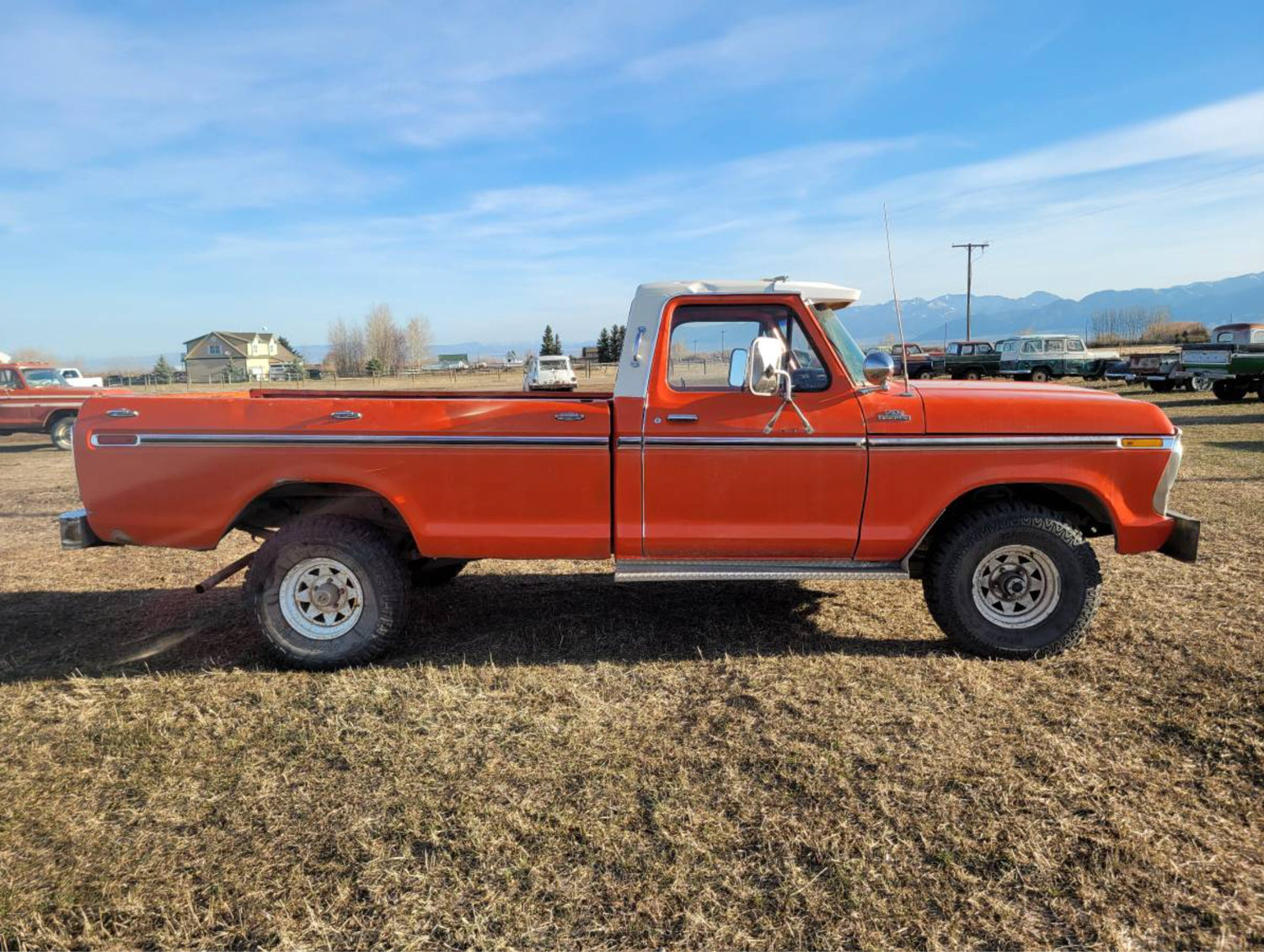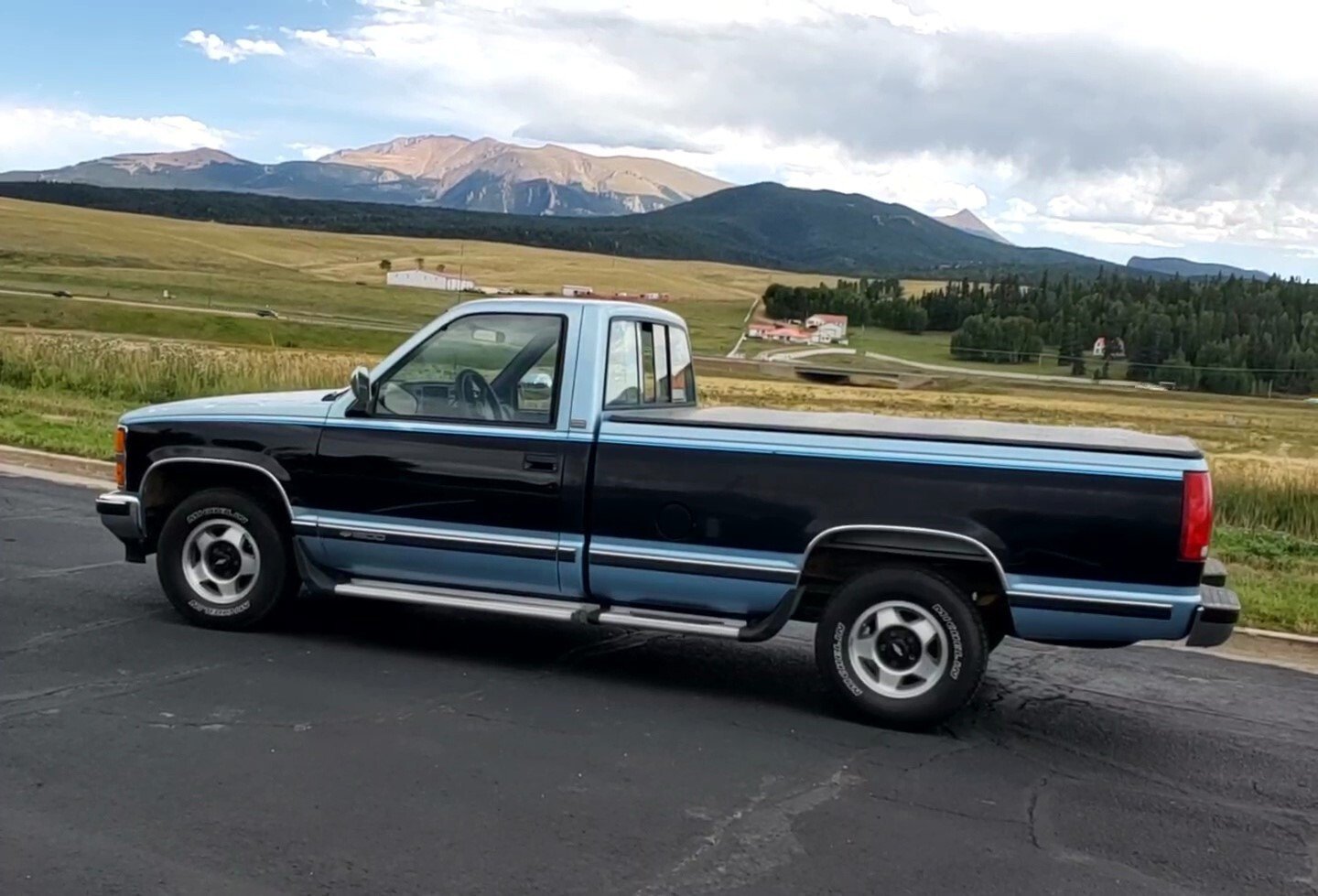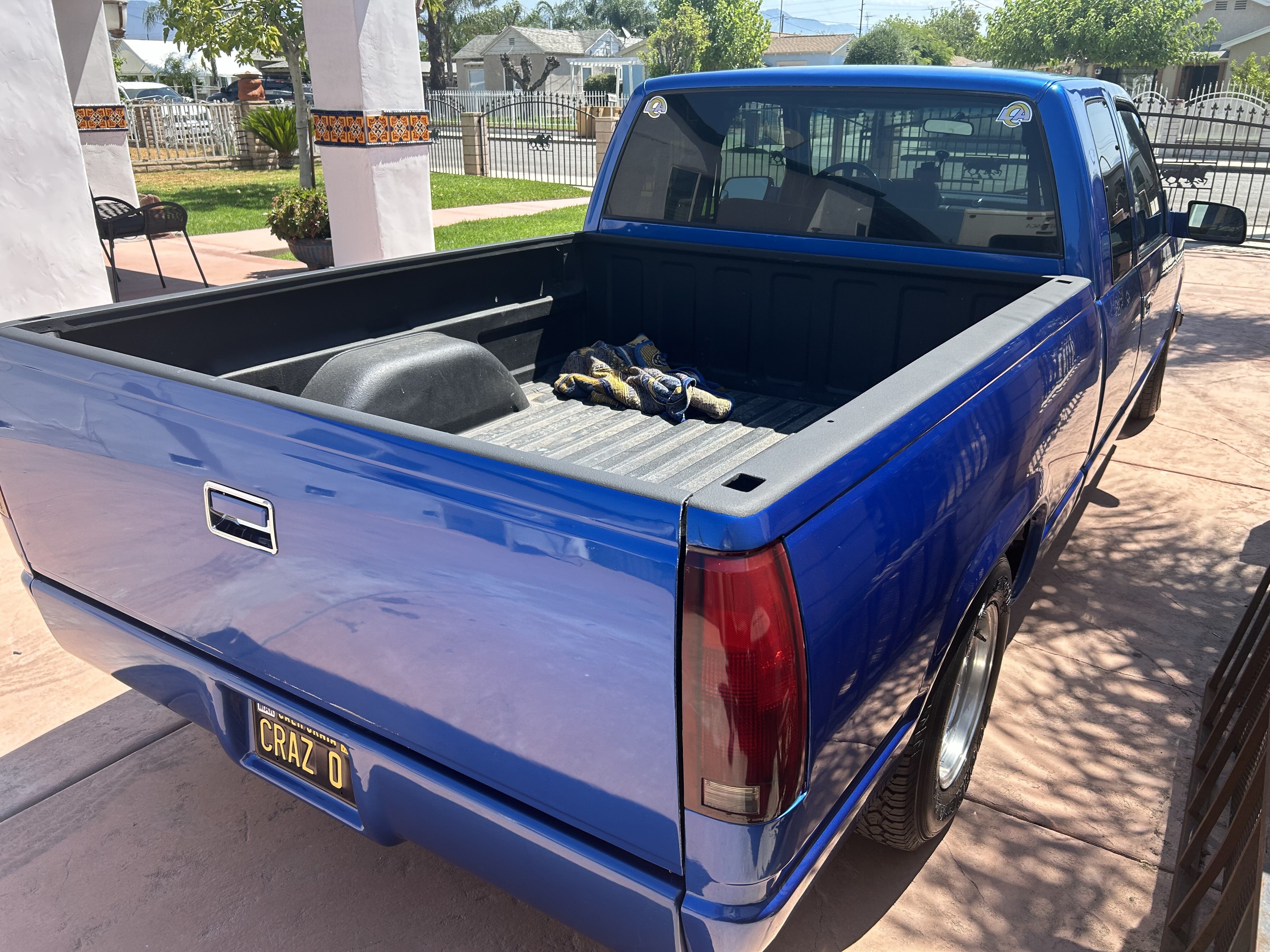The allure of an old truck is undeniable. Whether it's the rugged simplicity, the nostalgic charm, or the potential for a unique restoration project, vintage trucks hold a special place in the hearts of many. Finding an "Old Truck For Sale By Owner" offers a direct connection to the vehicle's history and often a more favorable price compared to dealerships. However, navigating the private market requires knowledge, patience, and a discerning eye. This comprehensive guide will equip you with the necessary tools to find the perfect old truck, ensuring a rewarding and informed purchase.
Introduction: The Appeal of Old Trucks and the Benefits of Buying From the Owner
Old Trucks For Sale By Owner: A Comprehensive Guide to Finding Your Vintage Gem
"Old Trucks For Sale By Owner" encompasses a diverse range of vehicles, from classic pickups and workhorses to vintage SUVs and even the occasional fire truck or military vehicle. These trucks represent a bygone era of automotive engineering, often characterized by robust construction, simple mechanics, and distinctive styling.
Buying directly from the owner offers several key advantages:
- Potentially Lower Prices: Owners are often more flexible on price than dealerships, who have overhead costs to cover.
- Direct History: You can learn firsthand about the truck's history, maintenance, and usage directly from the individual who owned and cared for it.
- Personal Connection: Engaging with the owner allows you to assess their honesty and care for the vehicle, providing valuable insight into its condition.
- Unique Finds: You're more likely to discover rare or unique models that might not be readily available through traditional channels.

I. Where to Find Old Trucks For Sale By Owner
The hunt for your dream vintage truck begins with knowing where to look. Here are some of the most effective platforms:
-
Online Marketplaces:

- Craigslist: A classic platform for local listings, offering a wide variety of trucks at varying prices. Use caution and always meet in a safe, public location.
- Facebook Marketplace: A more modern alternative to Craigslist, often with more detailed listings and user profiles.
- eBay Motors: A good option for finding trucks nationwide, especially if you're willing to travel or arrange shipping.
- Hemmings: A dedicated marketplace for classic and vintage vehicles, offering a curated selection of high-quality trucks.
- Bring a Trailer (BaT): An auction site known for its enthusiastic community and detailed vehicle descriptions.
- Specialized Forums and Clubs: Many online communities dedicated to specific truck makes and models have "for sale" sections. These are invaluable resources for finding rare trucks and connecting with knowledgeable enthusiasts.

-
Local Resources:
- Newspaper Classifieds: While less common than online listings, newspaper classifieds can still uncover hidden gems.
- Community Bulletin Boards: Check local community centers, grocery stores, and libraries for posted ads.
- Word of Mouth: Talk to friends, family, and local mechanics. You never know who might be looking to sell an old truck.
- Car Shows and Swap Meets: These events offer a chance to see multiple trucks in person and talk directly to their owners.
II. Assessing the Truck: A Detailed Inspection Checklist
Once you've found a potential candidate, a thorough inspection is crucial. Here's a checklist to guide you:
-
Body:
- Rust: Pay close attention to areas prone to rust, such as rocker panels, fender wells, door bottoms, and the frame.
- Dents and Scratches: Note any cosmetic damage and assess the cost of repair.
- Paint: Check for mismatched paint, overspray, or signs of previous repairs.
- Body Panel Alignment: Ensure that body panels align properly, indicating a solid and uncompromised structure.
- Bed Condition: Inspect the truck bed for rust, dents, and damage, especially if you plan to use it for hauling.
-
Engine:
- Visual Inspection: Look for leaks, cracks, or other signs of damage.
- Starting: Observe how easily the engine starts, both when cold and warm.
- Idle: Check for a smooth and consistent idle, without excessive shaking or noise.
- Smoke: Note the color of the exhaust smoke. Blue smoke indicates burning oil, black smoke indicates excessive fuel, and white smoke may indicate a coolant leak.
- Engine Noise: Listen for any unusual noises, such as knocking, ticking, or rattling.
-
Transmission:
- Shifting: Test all gears and ensure smooth and positive engagement.
- Slipping: Check for any slippage or hesitation during acceleration.
- Noise: Listen for any unusual noises, such as grinding or whining.
- Fluid Leaks: Inspect the transmission housing for leaks.
-
Brakes:
- Pedal Feel: Check for a firm and consistent brake pedal feel.
- Stopping Power: Test the brakes at various speeds and ensure they stop the truck safely and effectively.
- Noise: Listen for any squealing, grinding, or scraping noises.
- Brake Lines: Inspect brake lines for rust, leaks, or damage.
-
Suspension and Steering:
- Ride Quality: Note the overall ride quality and any excessive bouncing or swaying.
- Steering Play: Check for excessive play in the steering wheel.
- Suspension Components: Inspect shocks, springs, and bushings for wear or damage.
- Alignment: Observe the tire wear pattern. Uneven wear can indicate alignment issues.
-
Interior:
- Upholstery: Inspect seats, carpets, and headliner for tears, stains, or wear.
- Dashboard: Check for cracks, fading, or missing parts.
- Gauges: Ensure all gauges are working properly.
- Electrical System: Test all lights, signals, and accessories.
-
Frame:
- Rust: This is the most crucial area to inspect. Extensive frame rust can render a truck unsafe to drive.
- Damage: Look for any signs of bending, cracking, or welding, which could indicate previous accidents.
III. Essential Questions to Ask the Owner
Don't hesitate to ask the owner detailed questions about the truck's history and condition:
- Ownership History: How long have you owned the truck?
- Usage: What was the truck used for?
- Maintenance: What maintenance has been performed? Do you have any records?
- Repairs: What repairs have been done?
- Accidents: Has the truck been in any accidents?
- Storage: Where has the truck been stored?
- Do you have a clear title in your name?
- Why are you selling? Understanding their reason for selling can provide valuable insight.
IV. Negotiation and Closing the Deal
After the inspection and questions, it's time to negotiate the price. Research comparable trucks in your area to get an idea of fair market value. Be prepared to walk away if the price is too high or if you have concerns about the truck's condition.
Once you've reached an agreement, make sure to:
- Obtain a Bill of Sale: This document should include the truck's VIN, the selling price, the date of sale, and the names and signatures of both the buyer and seller.
- Verify the Ensure the title is clear and free of any liens.
- Complete the Title Transfer: Follow your local DMV's procedures to transfer the title into your name.
V. Potential Challenges and Solutions
- Finding Reliable Information: Utilize online forums and communities to research specific truck models and common issues.
- Hidden Problems: A pre-purchase inspection by a qualified mechanic can uncover hidden problems.
- Financing: Securing financing for an old truck can be challenging. Explore options like personal loans or credit unions.
- Parts Availability: Research the availability of replacement parts before purchasing a truck.
- Rust Repair: Rust repair can be costly and time-consuming. Factor this into your budget.
VI. Types of Old Trucks Commonly Found For Sale By Owner
- Classic Pickups (1940s-1970s): Ford F-Series, Chevrolet C/K Series, Dodge D Series. These are highly sought after for their iconic styling and restoration potential.
- Vintage SUVs (1960s-1980s): Chevrolet Blazer, Ford Bronco, Jeep Wagoneer. These offer a blend of classic style and off-road capability.
- Work Trucks (1950s-1980s): Heavy-duty trucks used for farming, construction, and other industrial purposes. These can be great projects for those looking for a rugged and utilitarian vehicle.
VII. Tips for a Successful Purchase
- Be Patient: Finding the right old truck takes time and effort.
- Do Your Research: Learn as much as you can about the specific truck model you're interested in.
- Inspect Thoroughly: Don't rush the inspection process.
- Negotiate Fairly: Be respectful and professional during negotiations.
- Get a Second Opinion: If you're unsure about something, consult with a trusted mechanic or classic car expert.
Price Table of Old Trucks For Sale By Owner
| Truck Model | Year Range | Condition | Price Range | Notes |
|---|---|---|---|---|
| Ford F-100 | 1953-1979 | Fair to Good | $5,000 - $25,000 | Popular for restoration; price varies greatly with condition. |
| Chevrolet C10 | 1960-1972 | Fair to Good | $7,000 - $30,000 | Highly desirable; often customized. |
| Dodge D100 | 1961-1971 | Fair to Good | $4,000 - $20,000 | More affordable option; good potential for restoration. |
| Ford Bronco (1st Gen) | 1966-1977 | Fair to Good | $15,000 - $50,000 | Highly collectible; prices have increased significantly. |
| Chevrolet K5 Blazer | 1969-1972 | Fair to Good | $12,000 - $40,000 | Similar to the Bronco in collectibility and price. |
| Jeep Wagoneer | 1963-1991 | Fair to Good | $8,000 - $35,000 | Classic SUV with woodgrain trim; prices vary with condition and year. |
| International Harvester | Various | Fair to Good | $3,000 - $15,000 | Unique and less common; often found in rural areas. |
| GMC Sierra | 1962-1972 | Fair to Good | $6,000 - $28,000 | Similar to the Chevrolet C10, often slightly less expensive. |
Note: These are approximate price ranges and can vary depending on location, specific features, and market demand. Always do your own research to determine a fair price.
Conclusion: The Rewarding Journey of Owning an Old Truck
Finding an "Old Truck For Sale By Owner" can be a challenging but ultimately rewarding experience. By following the guidelines outlined in this guide, you'll be well-equipped to navigate the private market, assess potential trucks, and negotiate a fair price. Owning a vintage truck is more than just owning a vehicle; it's about preserving a piece of automotive history and enjoying the unique character and charm that only an old truck can offer. Happy hunting!
Frequently Asked Questions (FAQ)
Q: What is the best way to find old trucks for sale by owner?
A: Online marketplaces like Craigslist, Facebook Marketplace, eBay Motors, and Hemmings are great starting points. Also, check local resources like newspaper classifieds and community bulletin boards. Don't forget to network with friends, family, and local mechanics.
Q: What are the most important things to look for when inspecting an old truck?
A: Rust is the biggest concern, especially on the frame, rocker panels, and fender wells. Also, inspect the engine, transmission, brakes, suspension, and interior for signs of wear or damage.
Q: Should I get a pre-purchase inspection?
A: Absolutely! A pre-purchase inspection by a qualified mechanic can uncover hidden problems and save you from costly repairs down the road.
Q: How do I negotiate the price of an old truck?
A: Research comparable trucks in your area to get an idea of fair market value. Be prepared to walk away if the price is too high or if you have concerns about the truck's condition.
Q: What is a Bill of Sale and why do I need one?
A: A Bill of Sale is a document that records the details of the sale, including the truck's VIN, the selling price, the date of sale, and the names and signatures of both the buyer and seller. It's essential for transferring the title and registering the truck in your name.
Q: Is it difficult to find parts for old trucks?
A: It depends on the specific truck model. Some parts are readily available, while others may be more difficult to find. Research the availability of parts before purchasing a truck.
Q: How do I transfer the title of an old truck?
A: Follow your local DMV's procedures for transferring the title. You'll typically need the title, the Bill of Sale, and proof of insurance.
Q: What are some common problems with old trucks?
A: Common problems include rust, engine issues, transmission problems, brake problems, and electrical issues.
Q: Is it worth restoring an old truck?
A: That depends on your goals and budget. Restoration can be a rewarding but costly and time-consuming process. If you're looking for a quick and easy project, restoration may not be the right choice. However, if you're passionate about preserving automotive history and are willing to put in the time and effort, restoration can be a very fulfilling experience.
Q: What kind of insurance do I need for an old truck?
A: You'll need at least basic liability insurance to drive an old truck on public roads. You may also want to consider collision and comprehensive coverage to protect your investment. Some insurance companies offer specialized coverage for classic and vintage vehicles.
0 comments